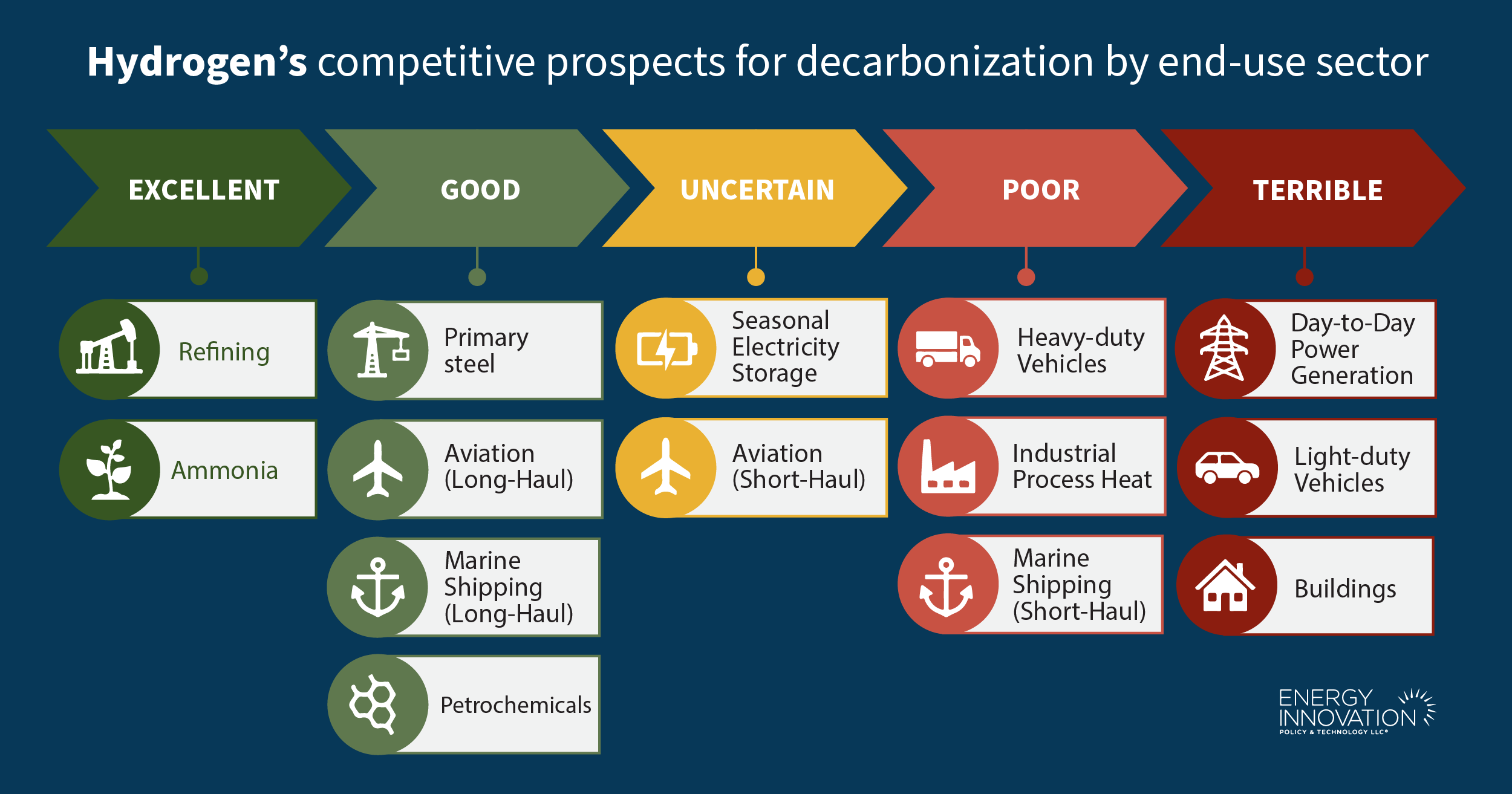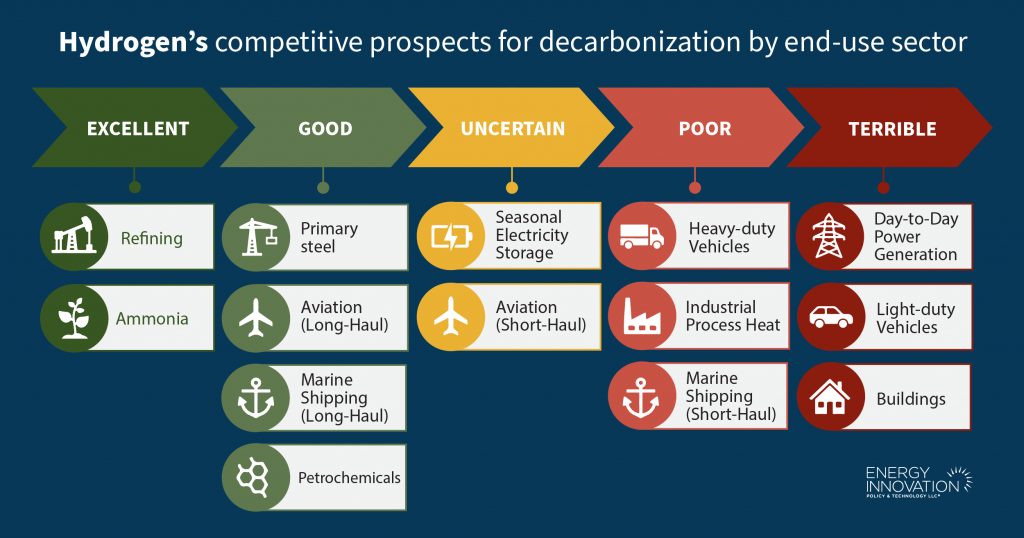
Full report here, remember to check Download without registering.
Light-duty vehicles = Terrible
I can read:
-
FCEVs currently outperform BEVs on range and refueling speed.
However, 96 percent of LDV trips are less than 125 miles, meaning BEVs can complete most trips on a single charge. [1]- main advantage, look like not actually needed
-
BEVs are much more efficient, requiring two to three times less clean electricity than FCEVs using electrolytic hydrogen. [2]
- efficiency; but we have excess on a windy or sunny day
Yes, there are times when there is excess, but big capital expenditures like an industrial-sized electrolyzer come with ongoing interest payments, so there’s a huge financial incentive to run them 24/7. Running it only sometimes means sharply higher capital costs for each mole of hydrogen produced. It’s a nasty balancing act.
actually, that’s not true. I built a hobby-grade hydrolysis machine in my garage for a total of $3. I can’t imagine hydrolysis machines to be significantly expensive in general.
The reason why they’re expensive today is because they’re completely over-engineered. But that’s not physics’ fault. It’s just someone seeking the “highest-quality product” instead of one that makes economic sense.
-
I think placing Aviation in the good to uncertain category is rather generous given the energy density requires such a large shift in airliner design in an industry that has only recently stopped requiring an experimental fuel variance to use unleaded fuel in the same model of engines that have been operating on the ground with unleaded for about half a century.
Biofuel and chemical synthesis just offer a simpler and nearly drop in replacement, with the main limitation being it costs more so the airlines are trying to drag their feet as much as their lobbyists allow them to, and somehow I doubt a complete redesign of nearly everything in aviation is going to be less expensive than switching to biodiesel.
The issue with biofuels is that we can’t actually produce enough of them to support anything like current levels of aviation, at least not without substantially displacing food production.
The issue with chemical synthesis is that it’s quite expensive.
So there’s a possibility that we’ll end up using hydrogen still.
Ohh I don’t think that we could sustain current levels of aviation with biofuels, though without their use as an lead substitute in gasoline and progress in reducing natural meat production we might be able to, just that it’s a lot more likely than getting a very slow to change industry to rebuild every single airport, aircraft, and fuel transport with a more expensive and less capable alternative.
Most of the limitation on chemical synthesis is from my understanding that it definitionally requires more energy than it produces, and as such doesn’t make much sense when that primary energy comes from fossil fuels which you could then have used instead. I also suspect that the cost while very high will be a lot lower than the amount required to basically rebuild the entirety of aviation from scratch.
It’s a conundrum, because while biofuels are expensive, there are ways to make them significantly cheaper, for example refining organic garbage and waste into fuels.




